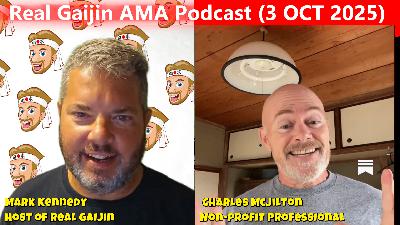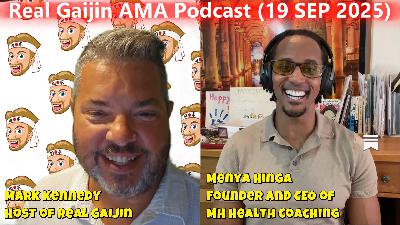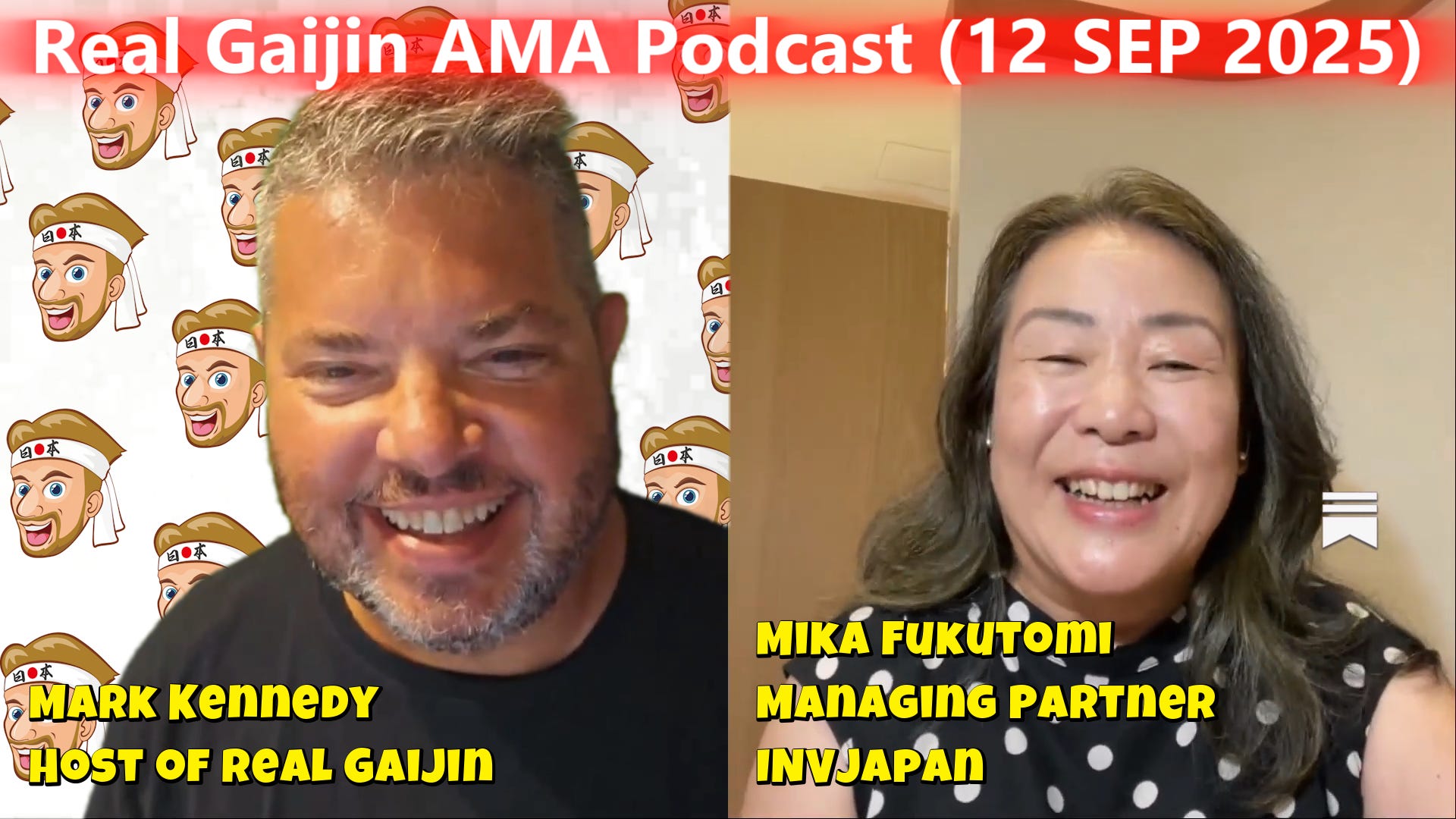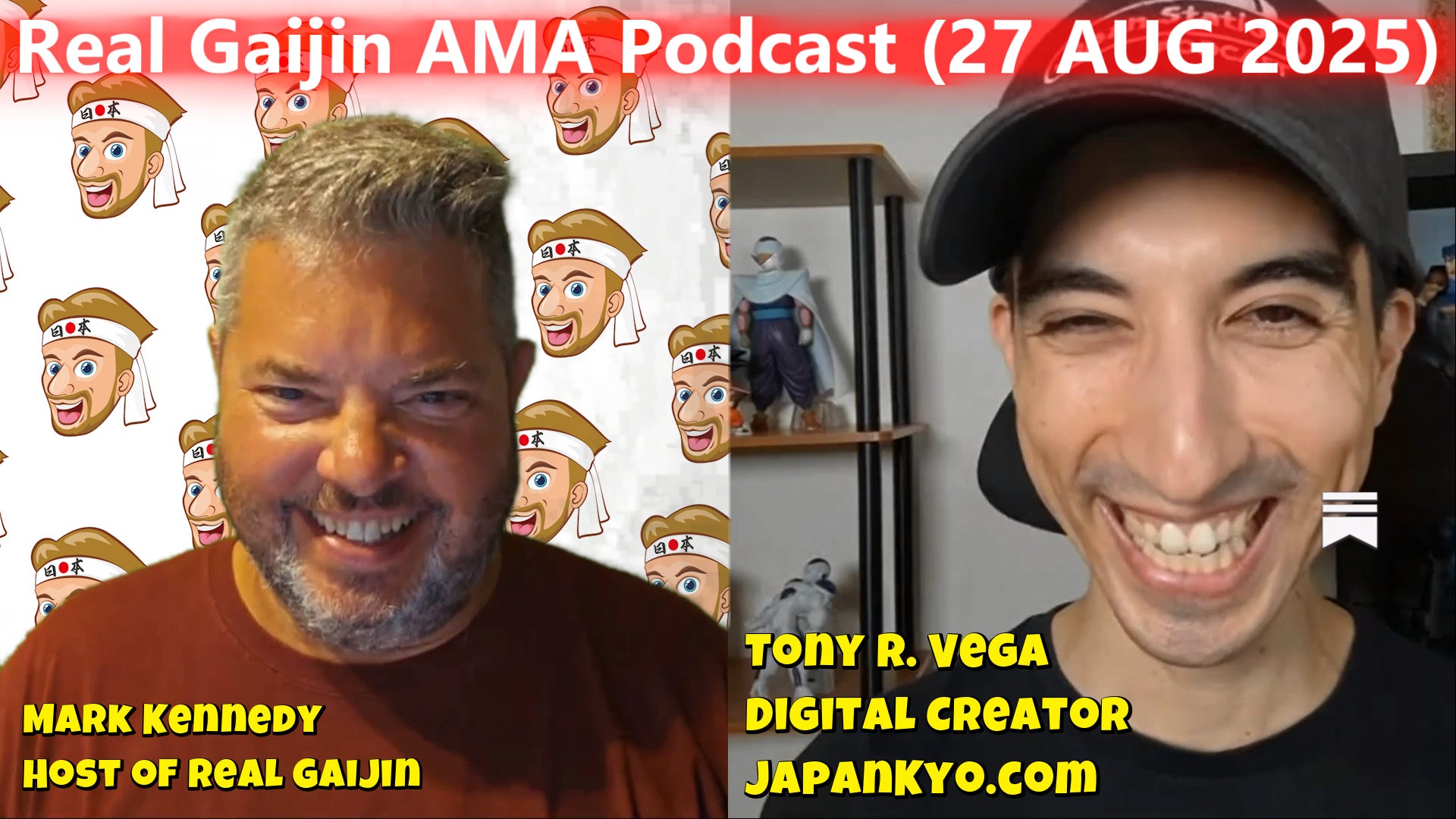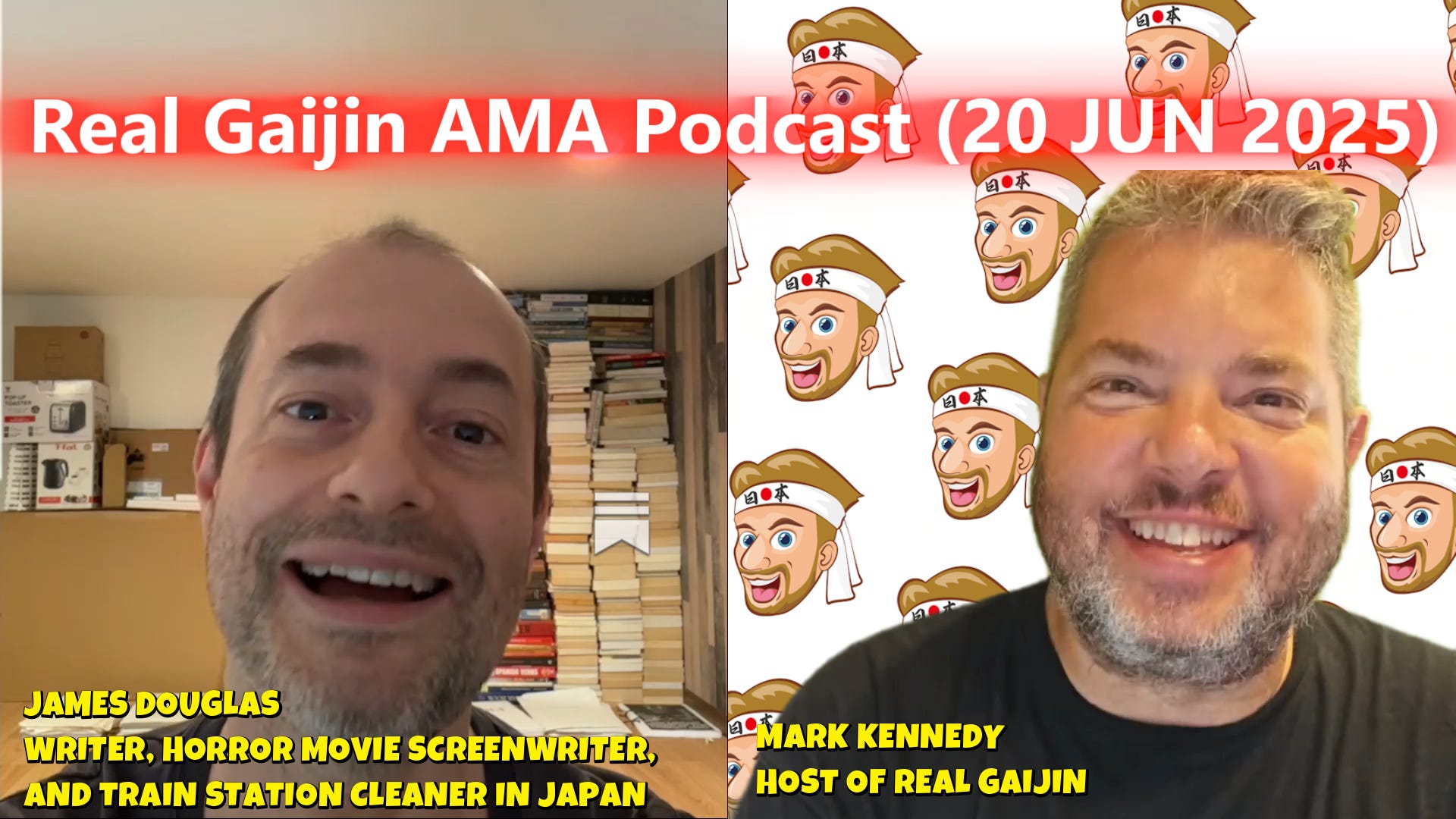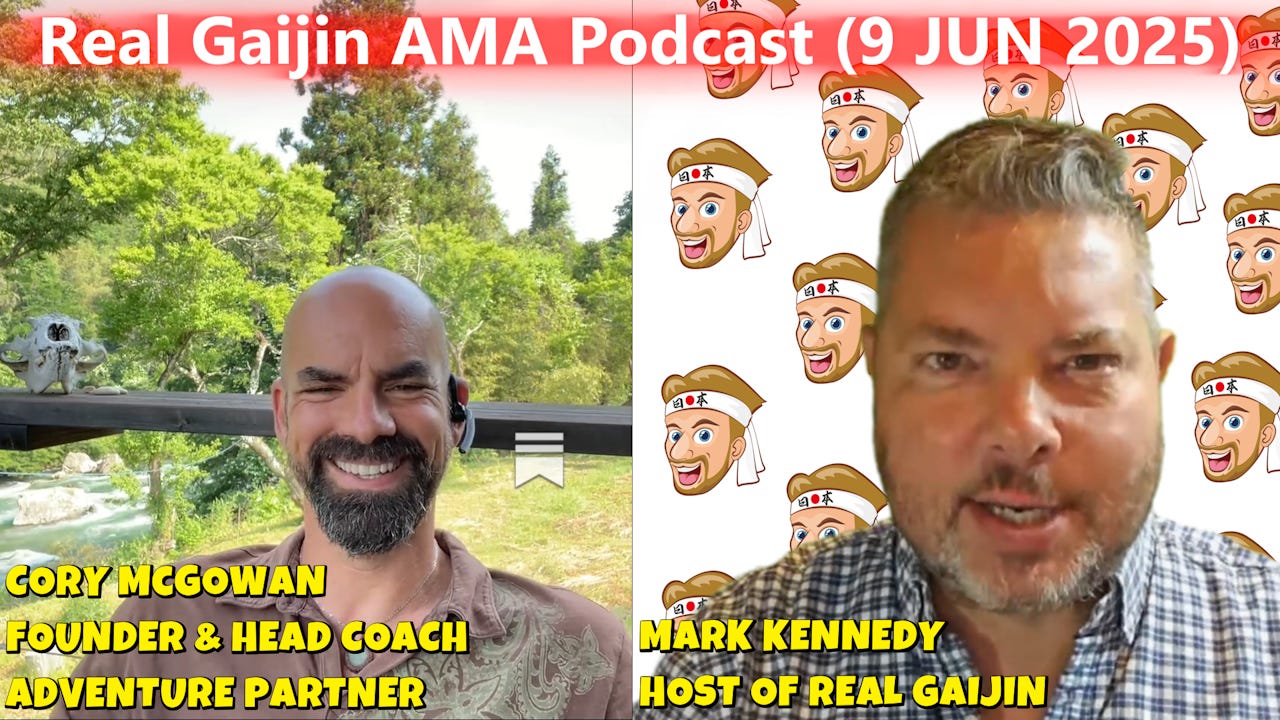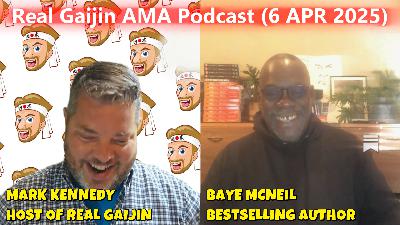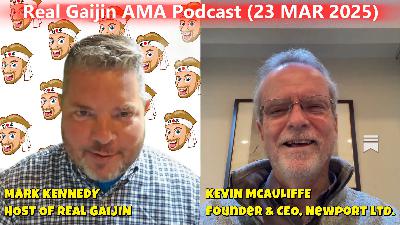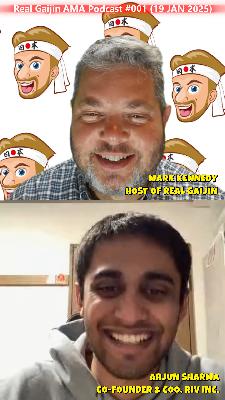AMA with Christopher Harding, Cultural Historian & Broadcaster Based at the University of Edinburgh (Read My Lips Podcast #26)
Description
In this age of unprecedented inbound tourism to Japan, it is easy to forget that, until the Meiji Restoration in the second half of the 19th century, Japan had limited interaction with the West for most of recorded history. However, there have been several influential figures who played a major role in advancing Japan’s interactions with the West throughout history.
Real Gaijin is a reader-supported publication. To receive new posts and support my work, consider becoming a free or paid subscriber.
Today, Real Gaijin is pleased to introduce renowned cultural historian and BBC broadcaster Christopher ("Chris") Harding of the University of Edinburgh. Chris is an outstanding storyteller who will captivate you from the moment you start listening to the recording. He publishes History with Chris Harding on Substack, exploring the histories behind what people love about Japan: food, film, famous names, ghost stories, sports, and the major challenges the country faces in the 21st century. Chris is interested in what happens when cultures and peoples first meet — a combination of fascination, embarrassment, and misunderstanding.
On this episode Chris introduced how four historical figures — both foreigners (OG versions of “real gaijin”) and Japanese — advanced Japan’s contact with the West.
Key Takeaways
* Francis Xavier experienced cultural miscommunication back in the 16th century: Although the Jesuits, such as Francis Xavier, were initially welcomed by local Buddhist monks in Kagoshima in the far southern part of Japan because they were mistakenly believed to have come directly from India to spread new learning, it eventually became known that the Jesuits were, in fact, not from India and represented competition. The Buddhists subsequently started referring to "deus," the Catholic "God," as "daiuso (大嘘)," which means "big lie." Francis Xavier never gave up his quest to convert the local and national powers, but he was never able to reach the Emperor and only achieved a degree of success in Japan.
* Yoshida Shoin (吉田松陰)'s adventurous spirit nearly brought him face-to-face with Commodore Matthew C. Perry: In the midst of the American "gunboat diplomacy" that shocked Japan in early 1854 — a key milestone that ultimately led to the end of the 220-year period of self-imposed national seclusion in 1868 — a courageous young man named Yoshida Shoin attempted to board Commodore Perry's foreign “black ship” in the dead of night to meet with him. Although he was thought to be a spy and was thwarted, Yoshida was able to get a firsthand look at the steamship during his brief encounter. The incident did not sit well with the Tokugawa shogunate, but it cemented Yoshida's place in history as a tragic hero eager to learn about the West.
* Fukuzawa Yukichi (福澤諭吉), the founder of Japan's prestigious Keio University, still symbolizes rationalism, self-determination, and national progress in Japan: His image graced the 10,000-yen bill for 40 years until last summer, and it is still in circulation. In 1860, Fukuzawa went on the first Japanese mission to the U.S. and Europe, bringing home a sense of urgency to catch up to the West, along with a strong advocacy for practical learning. Through his writings and speeches, he introduced Western ideas such as individual rights, liberty, and scientific reasoning.
Timeline
Substack does not yet have the functionality to allow you to use a link to jump to a specific section like YouTube's "chapters." Please refer to the times listed below to navigate through our hour-long conversation. Thank you for your understanding.
Key Contacts
* Website: https://christopher-harding.com/
* Substack Connection: https://substack.com/@christopherharding
* BBC Radio (Misunderstanding Japan): https://www.bbc.co.uk/programmes/p0369m6j
* Commodore Perry's Expedition to Japan: https://archive.org/details/commodorematthew0000witt
#ChrisHarding #ChristopherHarding #CulturalHistorian #history #JapaneseHistory #UniversityofEdinburgh #AHistoryofModernJapan #BBC #TheBordersofSanity #クリストファーハーディング #文化史家 #歴史 #外人 #外国人 #日本史 #エディンバラ大学
PS: If you enjoyed what you’re reading, consider hitting the “Like” button. It’ll help more people find this article.
You could also show your support—by recommending Real Gaijin to others.
Here’s how you can do this:
Go to your Dashboard.
Find Settings.
Go to Recommendations.
Go to Manage recommendations.
Add “Real Gaijin.”
Thanks for your consideration. - Mark
Please note that you can subscribe to Real Gaijin for free. If you are so inclined, you can also purchase an annual subscription for a relatively small fee.
However, I understand that even the lowest level of annual subscription allowed by Substack may seem too high for many. If you just want to buy a coffee for Real Gaijin (or maybe a green tea), you can also make a small donation here:
https://buymeacoffee.com/realgaijin
All levels of support - including just liking a particular article and/or leaving a comment - are very welcome. Thanks again for reading.
While Real Gaijin lives in Substack, you can also find Real Gaijin on a few other platforms (listed in alphabetical order).
https://bsky.app/profile/realgaijin.bsky.social
https://www.instagram.com/real_gaijin_on_substack/
https://www.threads.net/@real_gaijin_on_substack
https://www.tiktok.com/@real.gaijin
https://www.youtube.com/@RealGaijin
https://www.linkedin.com/in/mark-kennedy-5b50b71/
Get full access to Real Gaijin at realgaijin.substack.com/subscribe


